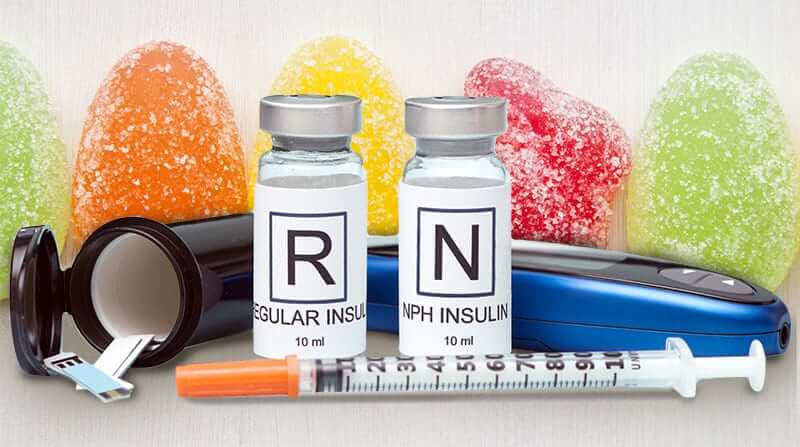I have been educating people with diabetes for two decades and I continue to be amazed at how many myths are still prevalent, so, I want to set the record straight on what I consider to be the top five diabetes myths.
MYTH 1 – Eating too much sugar causes diabetes
FACT: Actually, consuming too many calories, physical inactivity, increasing age, as well as a genetic predisposition to diabetes are potential causes. If someone ate sugar all day and their body had the ability to release and properly use insulin, they would not develop diabetes.
If you have diabetes, then you should avoid sugary foods, as well as too many carbohydrates. Carbohydrates affect the blood sugar more than protein or fat. Excessive quantities of certain starchy vegetables, cereals, and fruit will cause your blood sugar to rise too quickly. Working with a diabetes educator will ensure proper eating habits. Eating properly will not only help your blood sugar, can help you maintain optimal weight.
MYTH 2 – Testing your blood sugar in the morning after fasting is enough to understand patterns and what your A1C represents.
FACT: You should test your blood sugar at varying times of the day, not just first thing in the morning. An especially important time to test for those people taking insulin prior to meals. Also, one should test their blood sugar two hours after eating their first bite of food. Between the fasting numbers and the postprandial (after meal) numbers, you will have a better idea of what the A1C results really represent. You should test more often when you are ill, have undergone surgery, started an exercise program, and when you start a new medication or change the dosage of medicine.
MYTH 3 – Taking my diabetes pill is all I need to do to control my diabetes and prevent complications.
FACT: Adding lifestyle changes along with taking your daily medication correctly is the best way to control your diabetes. Lifestyle changes include a minimum of 150 minutes of aerobic activity per week. Activity could include walking, biking, swimming, line dancing and other activities you enjoy. Other “feel good” lifestyle changes include eating smaller portions, reading food labels, and counting carbohydrates. If you have diabetes, then smoking is a No-No! Smoking can worsen many diabetes-related complications including heart and blood vessel disease.
MYTH 4 – Your doctor is totally in charge of your diabetes care.
FACT: You are 95% responsible for your diabetes care. Your doctor is responsible to coordinate your care and is responsible for medication changes based on your blood work and logbook results. You are responsible to make lifestyle changes, including improving your eating and exercising. You are responsible to take your medication correctly. You are responsible for taking extra special care of your feet, teeth and eyes. You are responsible for testing blood sugar according to the directions you and your physician have agreed upon. You are responsible for managing your stress. With the extra stress of managing diabetes, you deserve to find ways to relax and have fun.
MYTH 5 – Low blood sugar (hypoglycemia) has no real symptoms.
FACT: Low blood sugar exhibits symptoms in most people who have diabetes. The low blood sugar can be caused by too much medication, too much exercise, or not enough food. The symptoms of hypoglycemia include sweating, shaking, weakness, hunger, dizziness, headache, nausea, visual disturbances, irritability, or fast heart beat. Some people who have had diabetes for several years may not experience any signs of hypoglycemia. This is called hypoglycemic unawareness and can happen because of chemical changes that can mask any symptoms.













Leave A Comment